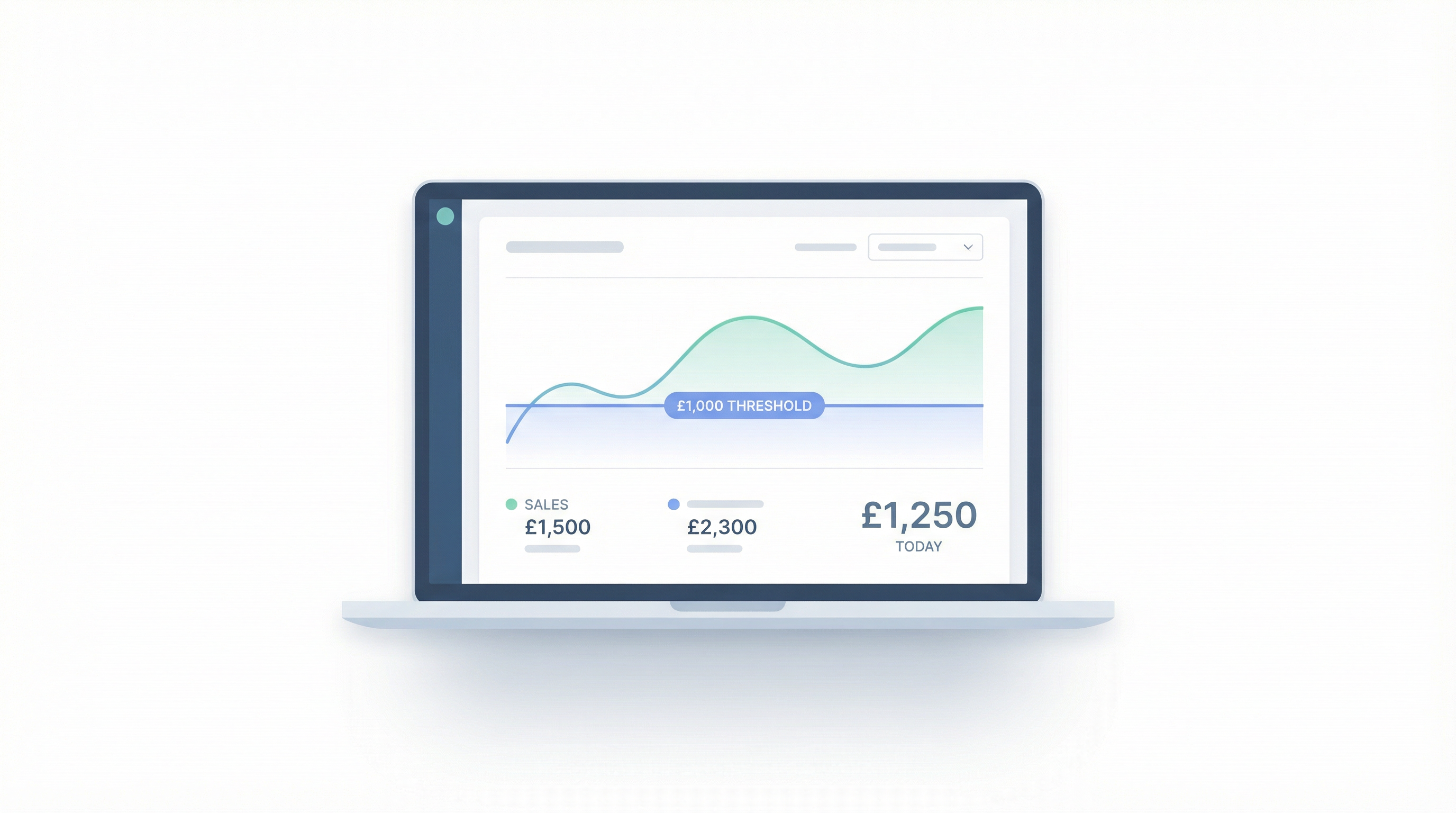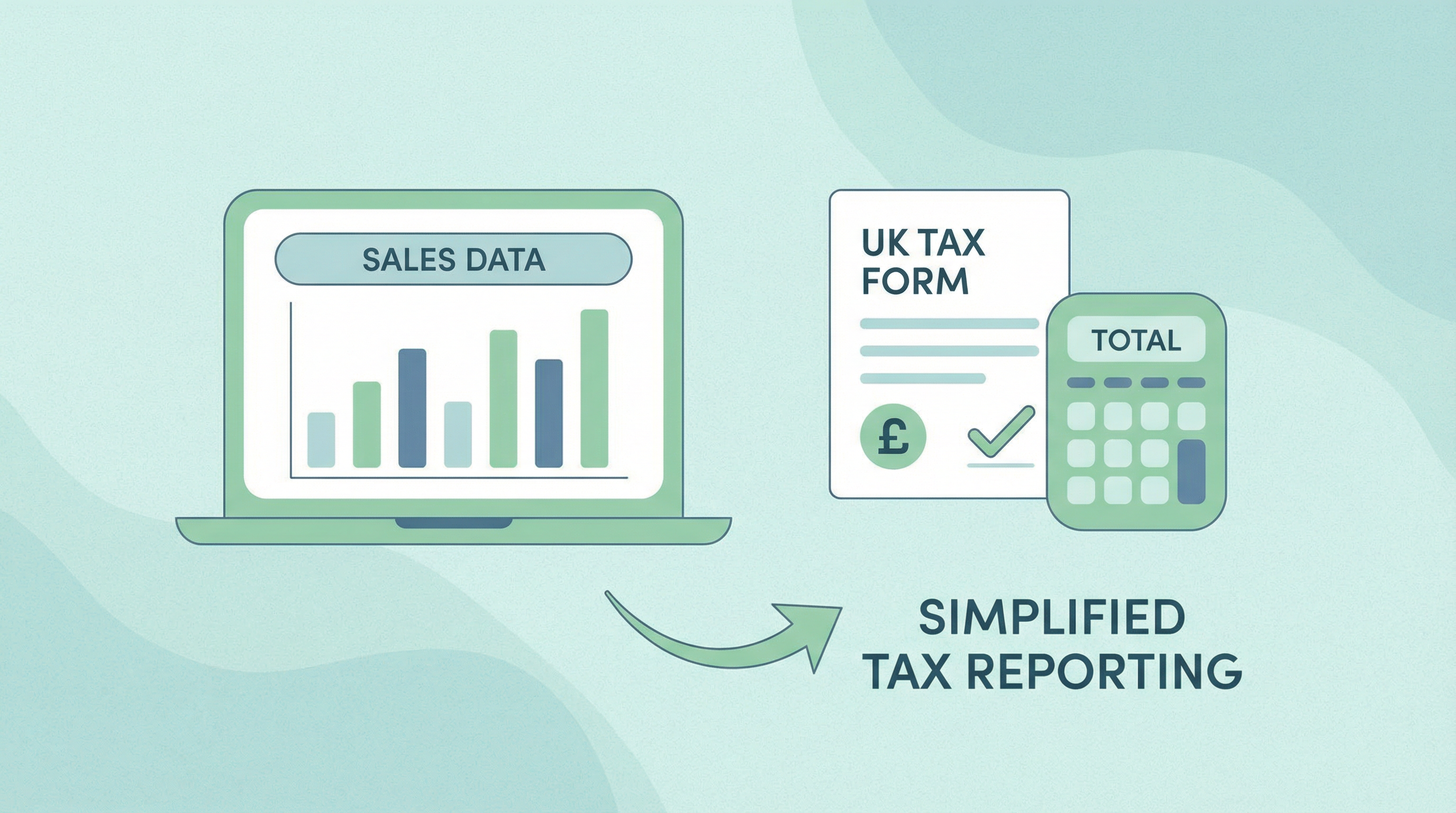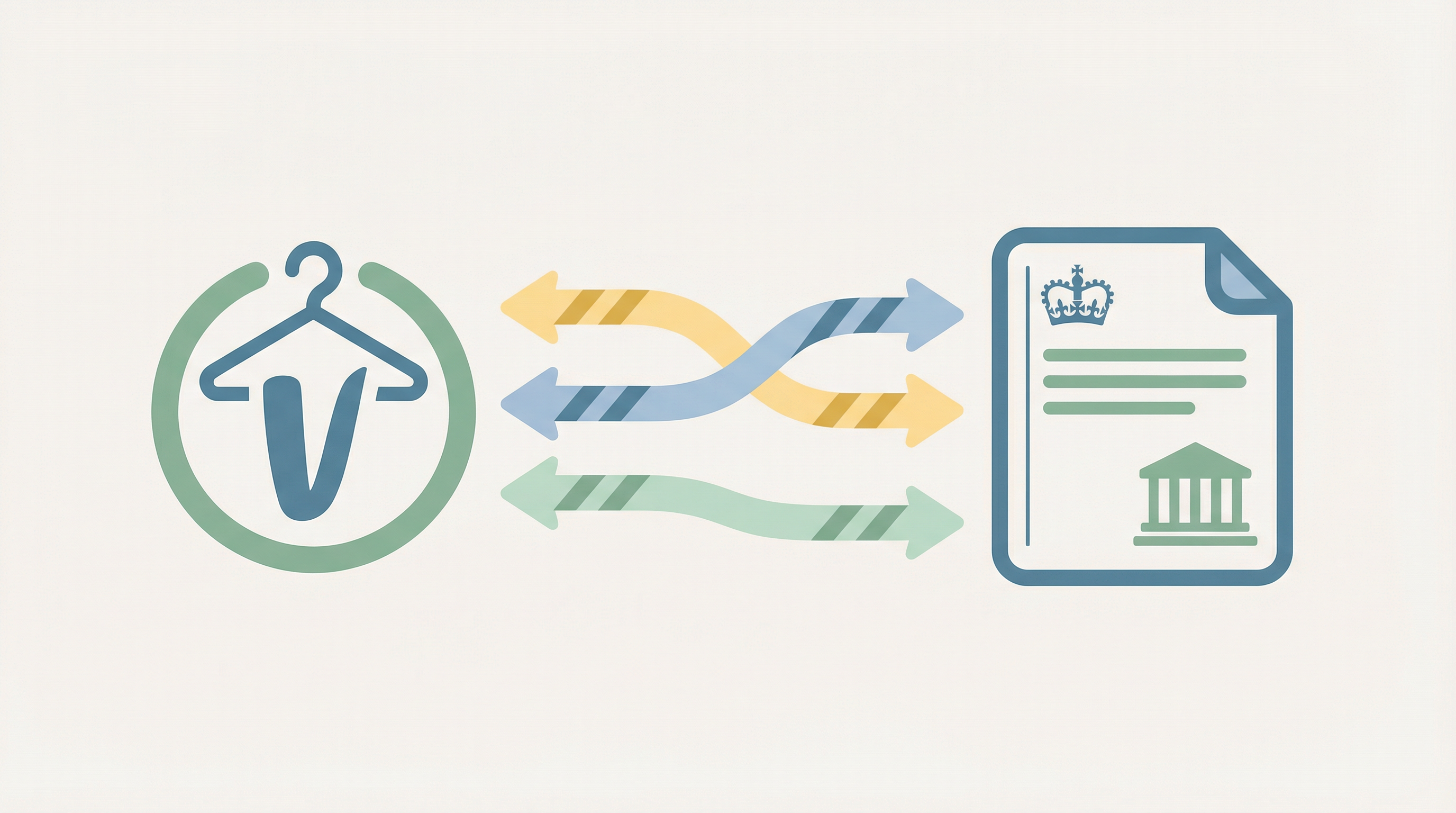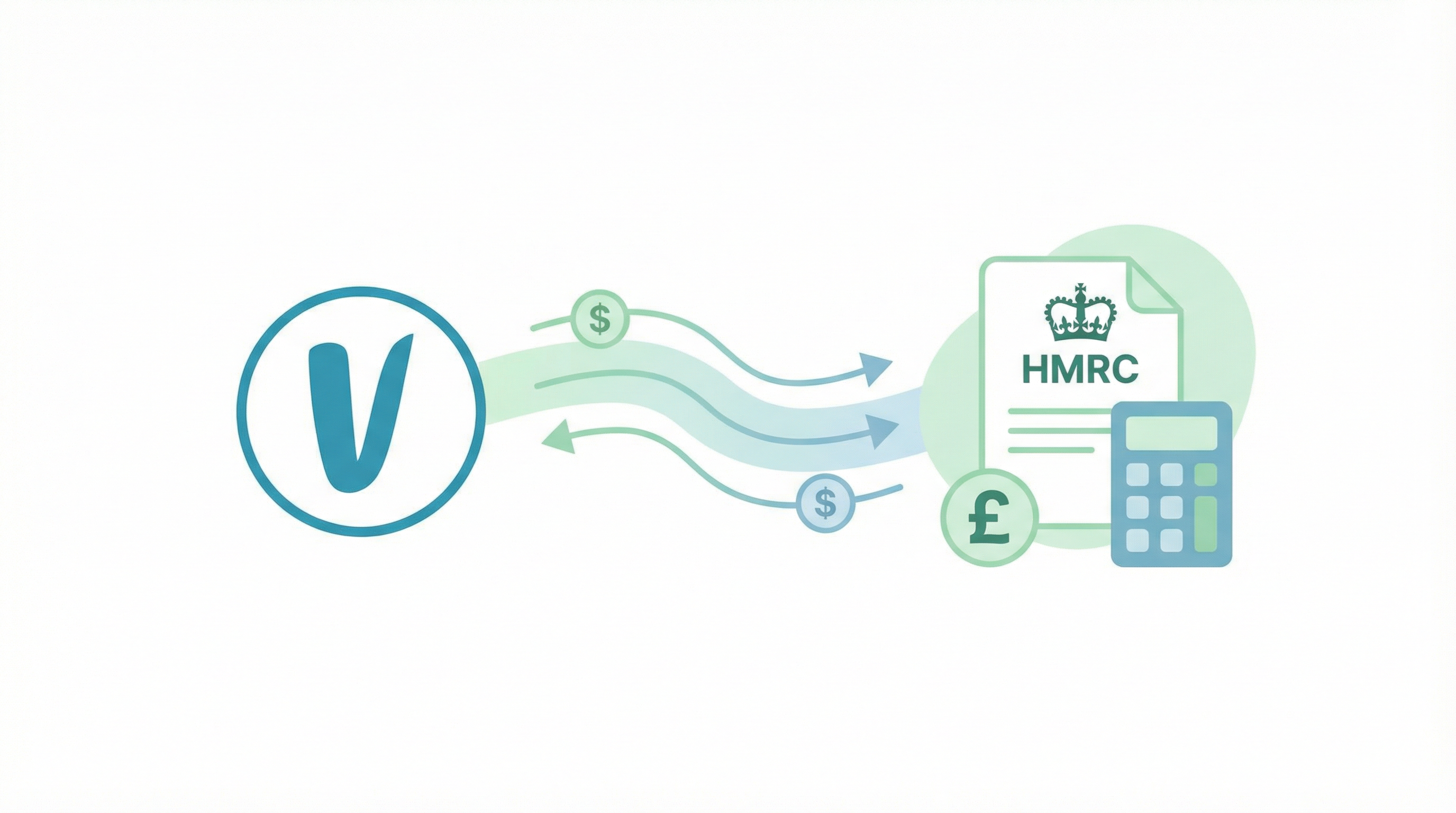Essential Record-Keeping for Vinted Sellers: A UK Tax Guide
Legal Notice: Vinta.app is independent and not affiliated with Vinted; Vinted has not reviewed or approved this content; this material is for information only and does not constitute legal, tax, or accounting advice.

Essential Record-Keeping for Vinted Sellers: A UK Tax Guide
If you're selling on Vinted as a business in the UK – meaning you're buying items to resell or otherwise trading with an intent to profit – then good record-keeping isn't just a helpful habit; it's a legal requirement by HM Revenue & Customs (HMRC).
Proper records are the backbone of managing your Vinted business effectively, ensuring you file accurate tax returns, and giving you peace of mind. This guide details the essential records you need to keep.
Why is Record-Keeping So Important for Vinted Businesses?
Maintaining accurate and organised records is crucial for several reasons:
- HMRC Legal Requirement: It's mandatory for all self-employed individuals and businesses.
- Accurate Tax Returns: Good records are essential to correctly calculate your profits and ensure you pay the right amount of Income Tax and National Insurance.
- Proof for Claiming Expenses: You need evidence (receipts, invoices) to claim allowable business expenses, which can reduce your taxable profit.
- Better Business Management: Records help you track your income and outgoings, understand your business's financial health, identify trends, and make informed decisions.
- Handling HMRC Enquiries: If HMRC ever has questions about your tax return, well-kept records will make the process much smoother and less stressful.
What Records Do Vinted Business Sellers Need to Keep?
HMRC requires you to keep records of all your business's financial transactions. For a Vinted business, this typically includes:
1. Sales Records (Proof of Income)
This is a log of all the money your Vinted business receives.
- What to keep: Details of every sale made on Vinted (and any other platforms if you sell elsewhere).
- Specifics: Date of sale, description of the item sold, the sale price, buyer details (like username or order ID provided by Vinted), and how the payment was received.
- How: Vinted provides a sales history within your account. You can use screenshots or download this information. Bank statements showing incoming payments also form part of this record. This is where a tool like Vinta.app can significantly help by tracking your Vinted sales income automatically.
2. Proof of Postage/Shipping
Evidence that you've sent items to your buyers.
- What to keep: Receipts from the Post Office or courier services, tracking numbers, and any proof of delivery confirmations.
- Why: Useful for resolving any disputes with buyers and necessary if you're claiming actual postage costs as an expense.
3. Expense Invoices and Receipts
Proof of all the money your Vinted business spends.
- What to keep: Receipts and invoices for all business-related purchases and expenses.
- Specifics include:
- Cost of Goods: Receipts or invoices for items you bought specifically to resell on Vinted.
- Platform Fees/Services: Records of payments for any Vinted services used to promote your items (e.g., "Item Bump," "Wardrobe Spotlight") or any Vinted Pro seller fees.
- Packaging Materials: Receipts for mailers, boxes, tape, labels, printer ink, etc.
- Postage Costs: If you paid for postage yourself.
- Mileage: If using your vehicle for business (e.g., sourcing stock, bulk post office trips), keep a detailed mileage log (date, purpose of journey, start/end mileage).
- Software/Subscriptions: Invoices for tools used in your business (e.g., photo editing apps, accounting software).
- Home Office Expenses: Records to support claims for using your home as an office (e.g., relevant utility bills if apportioning, or a log of hours worked if using the simplified flat rate).
- Other costs: Phone bills (business proportion), stationery, relevant training courses, accountancy fees.
- Format: Keep these as digital copies (scans or photos) or organised paper files.
4. Bank Statements
Statements for any bank account used for your Vinted business transactions.
- What to keep: All monthly or periodic statements.
- Why: These show all money coming into and going out of your account, helping you reconcile your sales and expense records.
- Tip: Consider opening a separate bank account for your Vinted business. It's not legally required for sole traders but makes it much easier to track business finances and keep them separate from personal transactions.
5. Other Relevant Documents
This might include:
- Correspondence with HMRC.
- Details of any business loans.
- VAT records (if you become VAT registered – most small Vinted sellers won't be initially, but it's good to be aware of).
Tips for Effective Record-Keeping
- Start Immediately: Begin as soon as you start trading. Don't wait for things to pile up.
- Be Consistent: Update your records regularly – daily, weekly, or at least monthly.
- Choose a System that Works for You:
- Digital: Spreadsheets are a good start. Accounting software or dedicated apps (like Vinta.app for sales tracking) can automate and simplify the process. Always back up digital records (e.g., to cloud storage).
- Paper: If you prefer paper, use organised folders and files for your receipts and invoices.
- Keep Business and Personal Separate: As mentioned, a separate bank account helps, but also try to keep physical receipts and digital files distinct.
How Long Must You Keep Records?
HMRC has strict rules on this. You must keep your business records for at least 5 years after the 31st January online Self Assessment tax return deadline for that tax year.
- Example: For the tax year 2023/24 (which ended on 5th April 2024), the online filing deadline is 31st January 2025. You would need to keep your records for this tax year until at least 31st January 2030.
Consequences of Poor Record-Keeping
Failing to keep adequate records can lead to:
- Difficulty completing your tax return accurately.
- Potentially paying more tax than necessary (if you can't prove all your expenses).
- Paying too little tax and facing interest and penalties later.
- Problems if HMRC decides to investigate your tax affairs, potentially leading to penalties for inaccurate or incomplete records.
How Vinta.app Supports Your Record-Keeping Efforts
While you need a comprehensive system for all your records, Vinta.app plays a key role in simplifying the sales income part of your Vinted business admin:
- Automated Sales Income Tracking: Vinta.app automatically records and organises your Vinted sales data, providing a reliable digital trail of your income. This saves you significant time and reduces the risk of manual entry errors.
- Easy CSV Export: You can export your Vinted sales data from Vinta.app. This CSV file can then be easily incorporated into your main accounting system, given to your accountant, or used directly when preparing your Self Assessment tax return.
- Clarity on Your Earnings: Get a clear view of your Vinted income, helping you understand your business performance and making financial planning easier.
By handling the detailed tracking of your Vinted sales income, Vinta.app frees you up to focus on other aspects of your business and ensures a crucial part of your record-keeping is always accurate and up-to-date.
Conclusion: Organisation is Key to Compliance
For any Vinted seller operating as a business in the UK, diligent and organised record-keeping is not just an administrative task – it's a fundamental legal responsibility and the cornerstone of good financial management. It gives you control, ensures compliance, and provides peace of mind.
Disclaimer: This article provides general guidance on record-keeping for UK businesses. Tax rules and HMRC requirements can change. For advice specific to your circumstances, please consult with a qualified accountant or tax advisor, or refer to official HMRC guidance.
Streamline your Vinted sales tracking with Vinta.app – the smart way to manage your income records.
Tags

George Jefferson
Vinted Pro Seller and founder of Vinta.app, sharing expert insights on professional Vinted selling, tax compliance, and scaling your online business.


